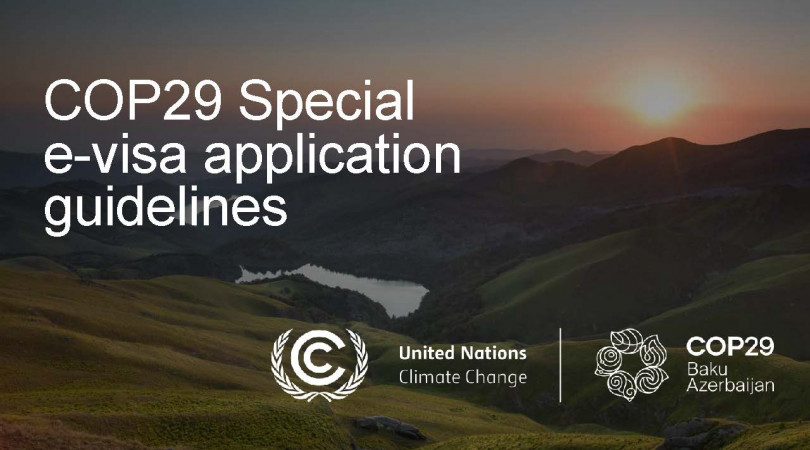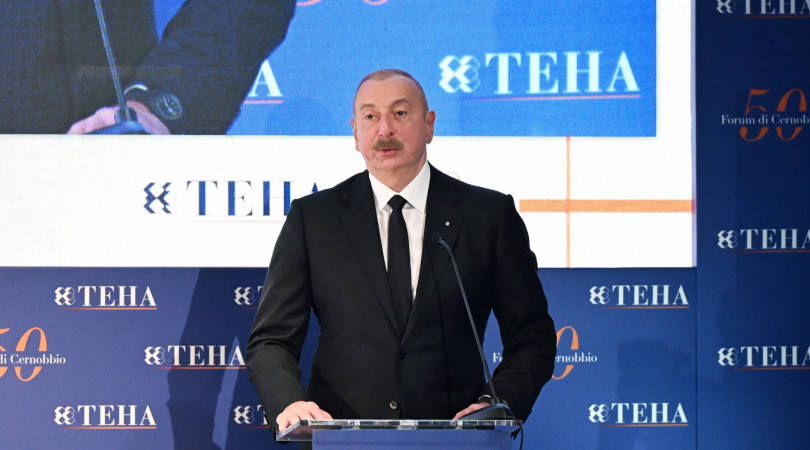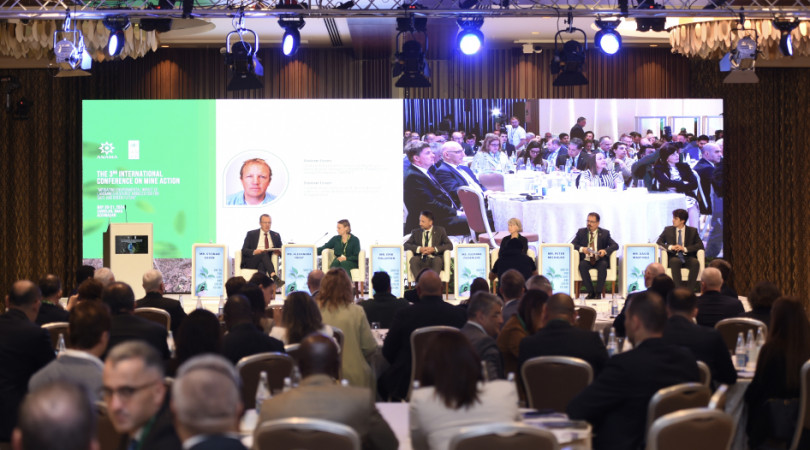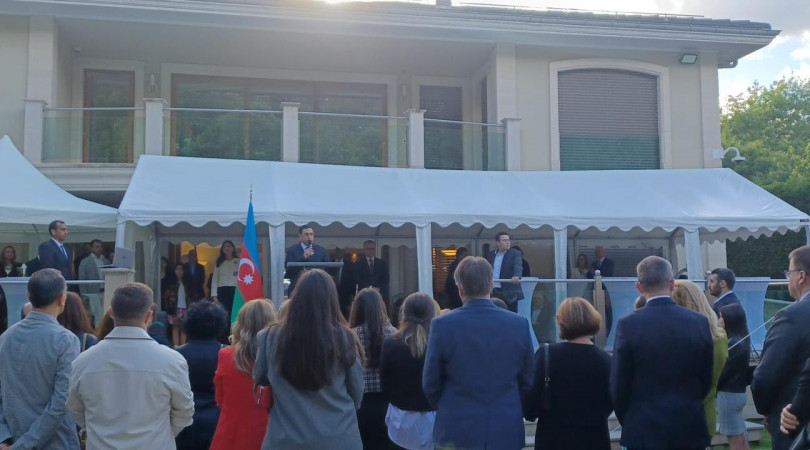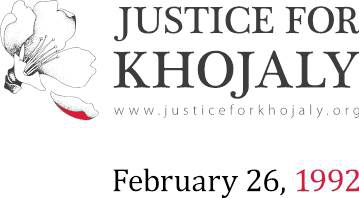Today is the 24th anniversary of the Khojaly Genocide
Commemoration of the twenty-fourth anniversary of the Khojaly genocide
The most serious crimes of concern to the international community, such as war crimes, crimes against humanity and genocide, have been committed in the course of the ongoing occupation policy of the Republic of Armenia against the Republic of Azerbaijan. Today, Azerbaijan commemorates the twenty-fourth anniversary of the atrocious crimes committed against the civilians of the town of Khojaly, situated in the Nagorno-Karabakh region of the Republic of Azerbaijan.
Late into the night of February 25, 1992 the town of Khojaly has become under the intensive fire from the towns of Khankendi and Askeran that already were occupied by the Armed Forces of the Republic of Armenia. At night from 25 to 26 February the Armed Forces of the Republic of Armenia supported by the ex-Soviet 366th Regiment completed the surrounding of the town, which already isolated due to ethnic cleansing of Azerbaijani population. The joint forces have occupied the town which had been brought in rubbishes by heavy artillery shelling. After all 150 people defending the town were killed by overwhelmed fire and by superior forces of advancing army regiments, the remaining handful of the town’s defendants provided a humanitarian corridor for several hundreds of the town’s residents to escape from their homes. Under the heavy conditions, residents moved into the darkness of night to be met at the middle of the route by ambush of Armenian forces. Several thousands of fleeing civilians, who tried to find asylum in the near-by forests and mountains terrain, were ambushed at several points and shelled by bullet rain. The Armenian Armed Forces reached out unprotected civilians to slaughter some, finish off others, having some bodies mutilated and scalped as the notorious Karabakh war trophies.
In a few hours of night from 25 to 26 February, 613 civilians were killed including 106 women, 63 children and 70 elderly people. 1,275 inhabitants were taken hostage, while the fate of 150 persons remains unknown to this day. In the course of the genocide 487 inhabitants of Khojaly were severely maimed, including 76 children not yet of age. 6 families were completely wiped out, 26 children lost both parents, and 130 children one of their parents. Of those who perished, 56 persons were killed with especial cruelty: by burning alive, scalping, beheading, gouging out of eyes, and bayoneting of pregnant women in the abdomen.
The facts confirm that the intentional offences committed against the civilians in Khojaly constitute a crime of genocide. Thus, in accordance with II Article of the United Nations Convention on the Prevention and Punishment of the Crime of Genocide 1948, “… genocide means any of the following acts committed with intent to destroy, in whole or in part, a national, ethnical, racial or religious group, as such: (a) Killing members of the group; (b) Causing serious bodily or mental harm to members of the group; (c) Deliberately inflicting on the group conditions of life calculated to bring about its physical destruction in whole or in part; (d) Imposing measures intended to prevent births within the group; (e) Forcibly transferring children of the group to another group. From this concept it is clear that actus reus and mens rea are the main elements of the crime of genocide. In the case of Khojaly actus reus was killing and causing serious bodily or mental harm, as well as other above-mentioned brutal acts. The specific genocidal intent (mens rea) to destroy, in whole or in part, a national, ethnical, racial or religious group, as such was also present in the case of Khojaly, because the facts confirm that the intentional massacre of the civilians in Khojaly was directed at their mass extermination only because they were Azerbaijanis. Therefore, these facts confirm that intentional slaughter of the civilians in Khojaly town constitutes a crime of genocide that was committed by Armenia against Azerbaijanis.
The genocide in Khojaly, along with other grave crimes that have been committed in the course of the ongoing occupation policy of the Republic of Armenia against the Republic of Azerbaijan, entail the state responsibility of Armenia and the individual criminal responsibility of those who participated in those acts and their accomplices and accessories. This responsibility emanates from public international law and, more particularly, from the provisions of the UN Convention on the Prevention and Punishment of the Crime of Genocide and those of the Convention for the Protection of Human Rights and Fundamental Freedoms, as well as from the International Law Commission’s Articles on Responsibility of States for Internationally Wrongful Acts.
In its judgement of 22 April 2010, the European Court of Human Rights arrived at an important conclusion with respect to the crime committed in Khojaly, qualifying the behaviour of those carrying out the incursion as “acts of particular gravity which may amount to war crimes or crimes against humanity”. The European Court made in this regard the following observation, which leaves no doubt as to the question of qualification of the crime and ensuing responsibility for it:
“It appears that the reports available from independent sources indicate that at the time of the capture of Khojaly on the night of 25 to 26 February 1992 hundreds of civilians of Azerbaijani ethnic origin were reportedly killed, wounded or taken hostage, during their attempt to flee the captured town, by Armenian fighters attacking the town …” (Judgement of the European Court of Human Rights of 22 April 2010, para. 87).
Armenian officials deny their responsibility for the crimes committed during the conflict, including against the population of Khojaly, airily falsifying facts and sharing their own interpretations of them, which deviate not only from reality but also from elementary logic. Nevertheless, even the subtlest propaganda will never manage to disprove the facts that speak of a situation diametrically opposite to that represented by the Armenian side.
Apart from the considerable information in possession of the law enforcement agencies of the Republic of Azerbaijan, the responsibility of Armenia is documented also by numerous independent sources and eyewitnesses of this genocide crime.
Western media reported with horror the killing of the innocent residents of Khojaly by indiscriminate Armenian gunfire and other brutal acts by invading troops (more information is available in document of the UN Commission on Human Rights E/CN.4/2002/151).
In his cynical admission of culpability, Armenia’s then-Defence Minister and current President, Serzh Sargsyan, was quoted by the British journalist Thomas de Waal, as saying, “Before Khojaly, the Azerbaijanis thought that ... the Armenians were people who could not raise their hand against the civilian population. We were able to break that stereotype” (Thomas de Waal, Black Garden: Armenia and Azerbaijan through Peace and War (New York and London, New York University Press, 2003), p. 172)).
Author Markar Melkonian would later describe in his book how some residents of Khojaly had nearly reached safety after fleeing almost six miles but “Armenian soldiers chased them down”. The soldiers, he continues, “then unsheathed the knives they had carried on their hips for so long, and began stabbing” (My Brother’s Road: An American’s Fateful Journey to Armenia (London and New York, I. B. Tauris, 2005), pp. 213-214).
In response to the Armenian side’s gross misinterpretation of the 1992 Human Rights Watch (HRW)/Helsinki report’s reference to the Khojaly events, the Executive Director of that non-governmental human rights organization, in a letter of 24 March 1997 addressed to the Minister of Foreign Affairs of the Republic of Armenia, pointed out the following: “We place direct responsibility for the civilian deaths with Karabakh Armenian forces. Indeed, neither our report nor that of Memorial includes any evidence to support the argument that Azerbaijani forces obstructed the flight of, or fired on Azeri civilians” (the letter of the HRW Executive Director is available at the HRW website: http://www.hrw.org/news/1997/03/23/response-armenian-government-letter-town-khojaly-nagorno-karabakh).
The overall assessment of the causes and consequences of the war unleashed by Armenia against Azerbaijan makes it absolutely clear that the intentional slaughter of the civilians of Khojaly was not an isolated or sporadic act, but was part of Armenia’s widespread and systematic policy and practice of atrocities, at the core of which are odious ideas of racial superiority, ethnic differentiation and hatred. It should be also noted that the Khojaly genocide and other crimes committed against Azerbaijanis during the conflict have finally exploded the myth depicting Armenia as an “eternal victim”. The true face of the Armenian propaganda machine, built on lies and falsifications, is already being exposed, the global public opinion is beginning to perceive the truth about Khojaly. And today the Khojaly genocide has been recognized and strongly condemned by the parliaments of 14 countries, as well as 21 states of the United States of America.
In recent years, as part of the international campaign “Justice for Khojaly”, numerous civil society institutions, youth and diaspora organizations have been carrying out activities for appropriate political and legal assessment to be given to this tragedy. The international recognition of the Khojaly genocide is the tribute to justice with regard to the victims of this tragedy. This will also serve to end impunity for the crimes committed in the course of aggression policy of Armenia against Azerbaijan. Ending impunity is essential not only for the purposes of individual criminal responsibility for serious crimes, but also for peace, truth, reconciliation and the rights of the

